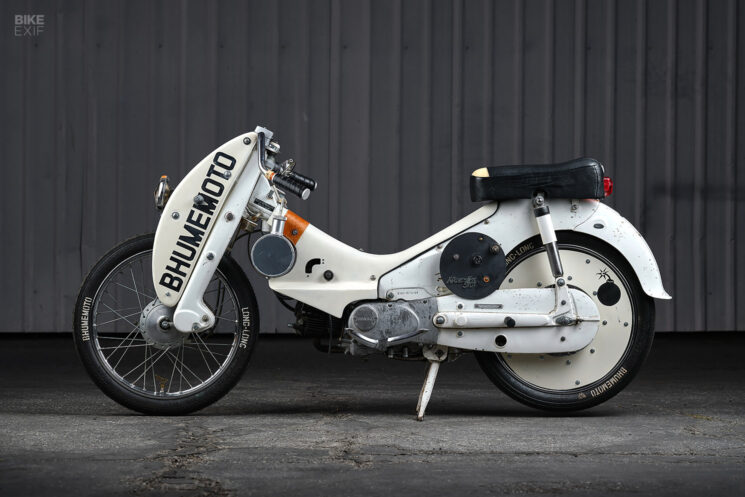
Few machines prove that good design is timeless as well as the Honda Super Cub. The iconic underbone scooter has been in constant production since 1958—and in all that time, its aesthetic hasn’t changed much. But what if it had turned out differently?
That’s the question posed by Bhumemoto. Based in Southern California, the fledgling custom shop is a collaboration between Patrick Razo and James Chung. Their debut build is a 1965 Honda Super Cub C100 that’s been reimagined as a hypothetical concept bike from the 60s.
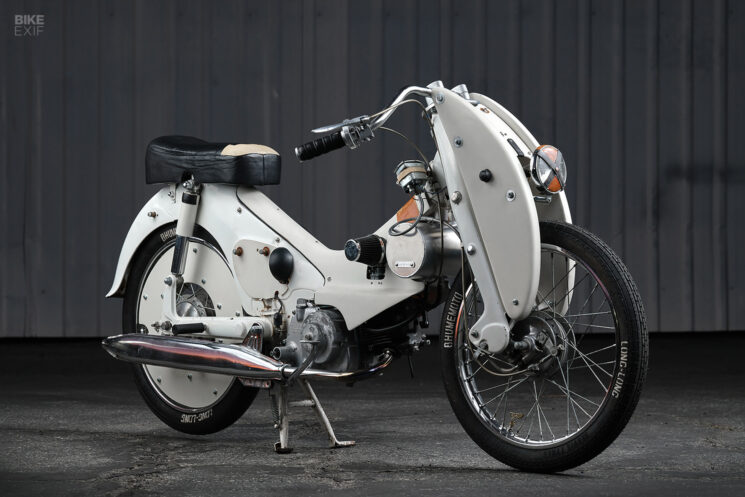
The idea behind this build is as if this was a concept bike that was being developed alongside the original Super Cub,” Patrick explains. “Something happened that forced the project to be shelved and locked away, not to be seen for decades, until recently being found and revealed.”
Nerding out over design theory is intrinsic to Bhumemoto’s process. Patrick got his start in the high-end fashion industry, but now works as a concept designer for the entertainment industry, with a client list that includes major movie and game studios. James is currently an indie producer in the games, animation, and toy industries, with a resume that includes working on the popular Call of Duty game series and overseeing various other projects at Electronic Arts.
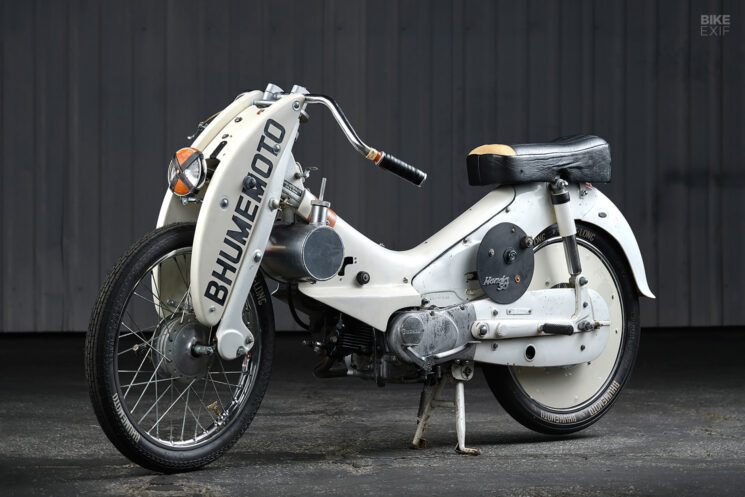
Dubbed ‘Long Long’ (which roughly translates to ‘Rumble’ in Chinese), Bhumemoto’s Super Cub draws inspiration from early speed challenge vehicles. But it also retains just the right amount of Super Cub DNA to maintain a connection to the scooter’s heritage.
Part of the magic lies in the myriad stock Super Cub parts that Bhumemoto tweaked instead of trashing. The wheels are original, but the rear has been encased in custom-made discs and wears a slightly chunkier tire than before.
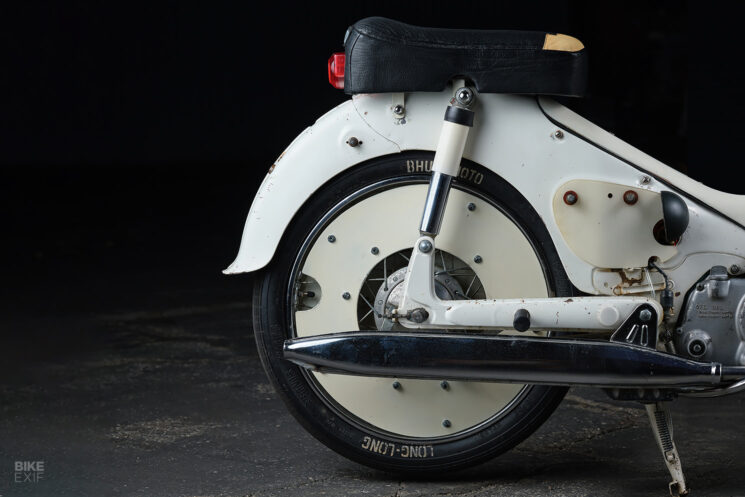
The OEM wheel well and rear fender are still in play too, even though the original plan was to shorten them. “Since our goal was to compliment the original design as much as possible, we really loved the swooping line that starts from the front of the bike all the way to the end,” says Patrick. “So we decided to keep it after many discussions.”
Moving forward, the Super Cub retains the bodywork that’s draped over the middle section of its frame. It’s been modified to accommodate an off-the-shelf fuel tank, and liberated of its front wind deflectors. They’re replaced by a pair of swooping fork shrouds, handmade out of fiberglass.
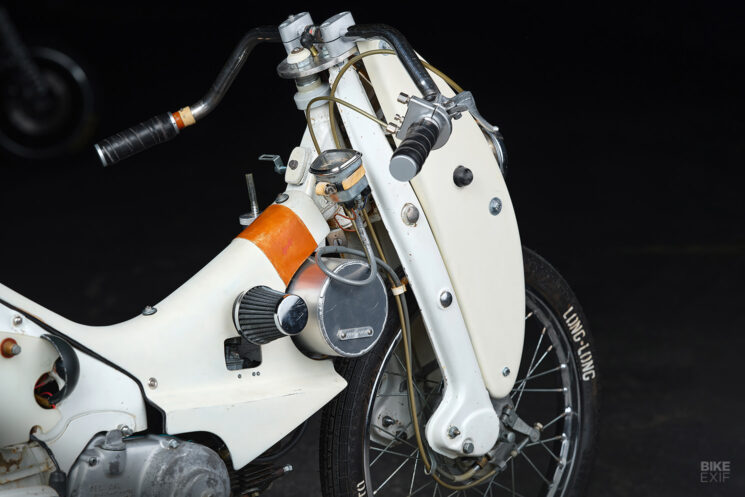
The handlebars were found at a scrapyard and fitted upside-down to create the low, swooped effect you’d find on vintage bicycles. Bhumemoto repurposed the original Super Cub headlight, speedo, and throttle assembly. The leather trim and hand-wrapped grips came from Trip Machine Company in India.
Moving to the seat, Bhumemoto built a stubby perch and re-housed the original taillight at the back of it. Given the amount of patina on the original parts, the seat was covered in patchwork leather, so that it looks busted up from afar.
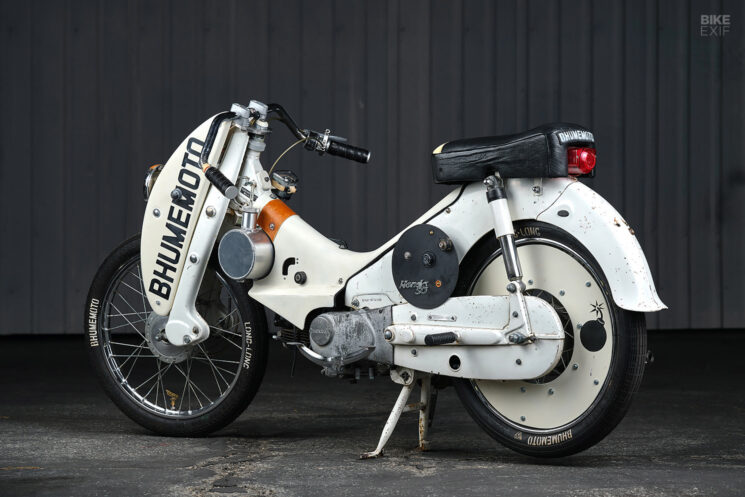
Another clever detail is the scooter’s rustic left-hand side cover. It not only houses the ignition and a classic Honda badge, but it deliberately sports a circular design to echo the shapes of the fuel tank, points cover, and rear wheel cover.
The Super Cub is finished with a handful of quirky graphics, and a stunning front wheel valve cap, handmade by 38 Silver Works in Japan.
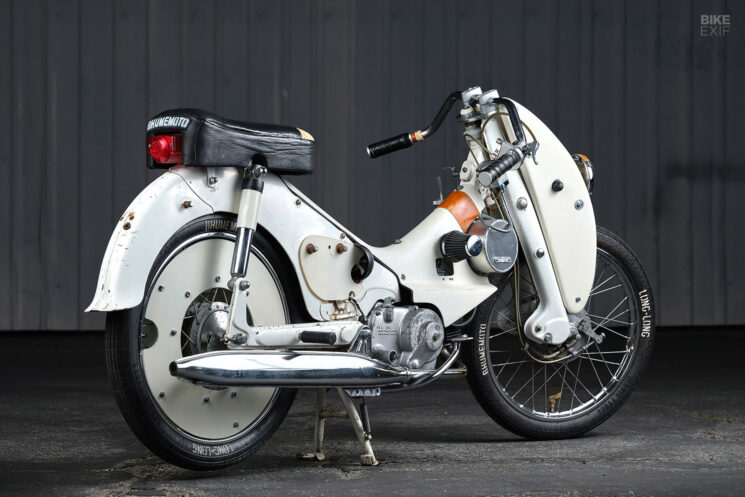
With no changes to the 1965 Honda Super Cub’s engine, suspension, or brakes, it’s not about to break any land speed records. But it is an interesting study of what could have been, had the Super Cub’s designers gone in a different direction.
Bhumemoto Instagram | Images by Mo
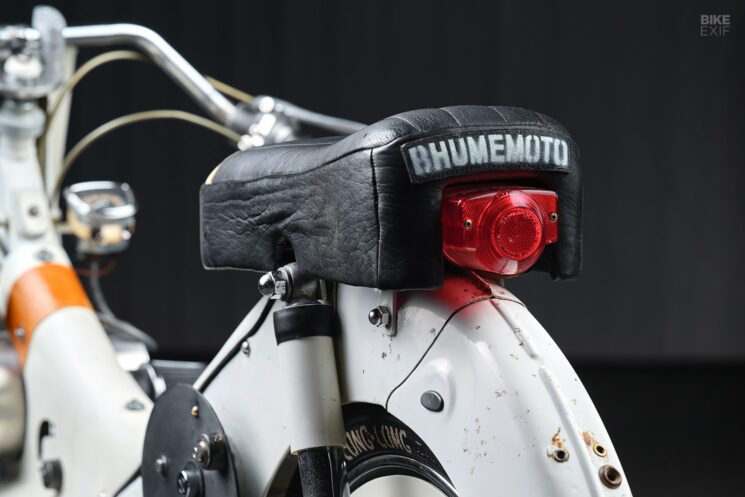
from Bike EXIF https://ift.tt/aWj0DtO
No comments:
Post a Comment